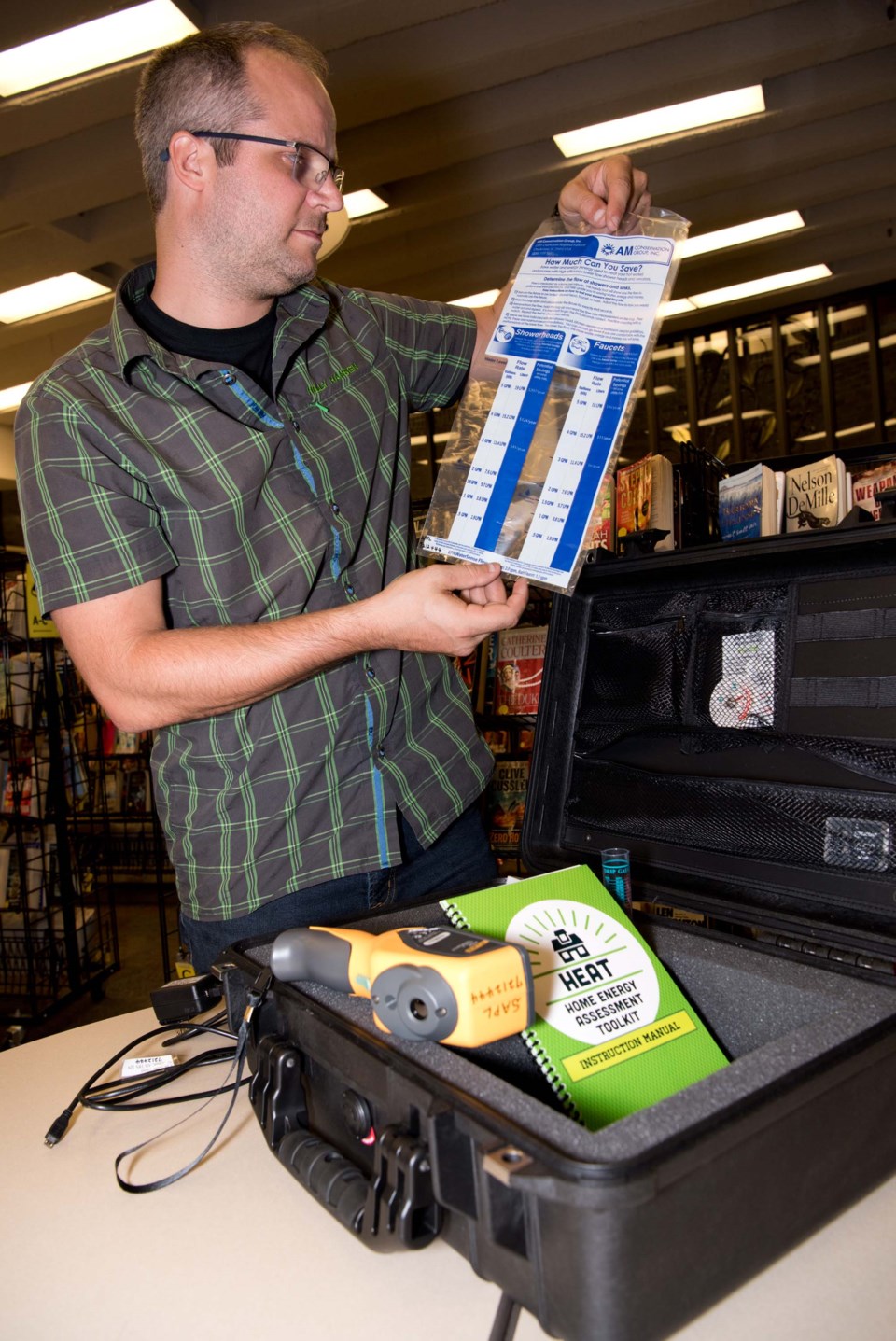Neighbours for climate
The Gazette is using the City of Edmonton’s Neighbouring for Climate guide to help St. Albert streets fight back against climate change. Check out the guide at edmonton.ca/climateneighbours.
As previously noted in the Gazette’s This Green House series, homes account for about 18 per cent of the heat-trapping pollution produced in Canada. Anything we can do to cut that pollution — insulation, heat pumps, solar panels, etc. — will mean less global heating, fewer wildfires, and, potentially, smaller energy bills.
Doing an energy audit can help you nail down which of these energy-saving upgrades to do first, and in many cases unlock a slew of federal and municipal grants. The Neighbouring for Climate Guide suggests finding out who on your block hasn’t had an audit done yet and hiring one auditor to examine them all.
How to audit
An energy audit is a study done by a certified auditor who studies how a building uses energy and how to make it use less of it, explained Jay Cooke, a St. Albert resident and energy auditor with Energy Werx Alberta (which does certified EnerGuide audits throughout Alberta). It typically includes guidance as to the payback times and grants associated with various energy efficiency improvements, and a followup study to determine the amount of energy those improvements saved. The audit results in an EnerGuide score that tells you how efficient the building is compared to other structures.
Cooke said a typical home energy audit will cost about $800, $600 of which you can get back through the Canada Greener Homes Initiative. The Canada Greener Homes program offers $50 to $5,000 grants and interest-free loans of up to $40,000 for upgrades recommend by an energy audit, such as better insulation, smart thermostats, and heat pumps. You can stack those dollars with St. Albert’s Home Energy Efficiency Grants and Clean Energy Improvement Program, the latter of which lets you install upgrades for no money down. If you do everything your report recommends, Cooke said your building should be at least as energy-efficient as one built to today’s standards.
Cooke said the best times to do an energy audit are the fall and winter, as that’s when most auditors aren’t as busy and when cold outdoor temperatures make it easy to spot heat leaks.
Cooke said the Greener Homes program and St. Albert's CEIP have excellent guides on how to find a certified energy auditor.
While you’ll need a certified audit to qualify for most grants, you can start saving energy on your street by doing your own audits with a Home Energy Assessment Toolkit from the St. Albert Public Library. The tools in it can help you spot leaks and inefficient appliances, both of which you can fix on your own.
Mass savings?
Doing a whole bunch of audits all at once might get you a slight volume discount, said Rachael Murphy, co-owner of Energy Werx Alberta — as the audits all have to follow a fixed process, the main savings would be from reduced travel time for the auditors, which is more of a factor in remote areas. Mass audits could also lead to mass savings if everyone on your block has similar upgrades to make (e.g. everyone gets solar), as you could hire the same contractors to do them all at once.
Community groups can reap big benefits from energy audits, said Reg Kontz of the Cloverdale Community League in Edmonton. The league rolled out a slew of improvements to its community hall following an energy audit in 2016, re-insulating the attic, replacing windows, and installing rooftop solar. By 2021, these and other improvements had cut the hall’s electricity use by about 75 per cent and its natural gas use by 63 per cent, with more than half of those drops happening before the pandemic. Last March, The Edmonton Federation of Community Leagues determined the hall had an annual energy cost of about negative $630, making it the most energy-efficient facility of its kind in Edmonton.
“It’s a very positive impact on the pocketbook,” Kontz said, and it frees up cash for other league initiatives.
The St. Albert Community League did an energy audit of its hall in around 2019, said treasurer Michael Clulow. The audit prompted them to upgrade the hall’s lights to LEDs, install a high-efficiency furnace, and replace the basically worthless 80-year-old wood chips in the roof with modern, fire-safe insulation.
“We’ve reduced our power consumption by about 25 per cent,” Clulow said, and the hall is also probably a bit more comfortable, too.
Energy audits can make your community cheaper and more comfortable to live in. If you want to be a better neighbour for your planet, they’re a great place to start.




